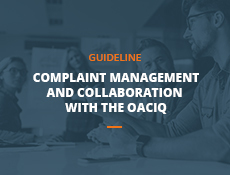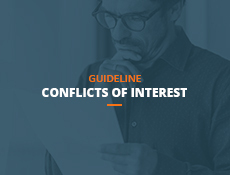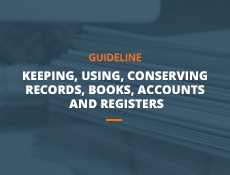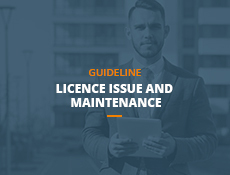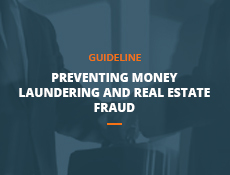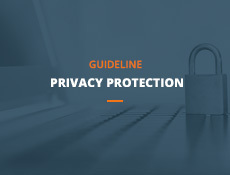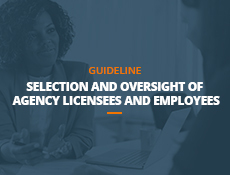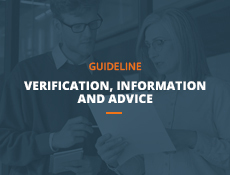Guidelines of the OACIQ
To support your decisions, especially in terms of compliance, we have published guidelines on topics of interest.
They explain the regulatory framework applicable under the Real Estate Brokerage Act and its regulations and set out proper practices. They specify our expectations as a regulator, while promoting licensee compliance. They also help agency executive officers develop their compliance program.
1. Demonstrating a spirit of cooperation
2. Respecting the exclusive nature of the brokerage contractand the role of the OACIQ
3. Ensuring fair and equitable marketing
4. Respecting the “collaboration mode"
5. Demonstrating a reasonable degree of availability
6. Disclosing information relevant to the closing of the transaction
7. Disclosing the existence of any transaction proposal
8. Presentation of transaction proposals
9. Remuneration
10. Collaborating with licensees from other jurisdictions
11. Collaboration and remuneration sharing in a commercial context
12. Client referrals

1. Obligation to protect and promote the interests of the person represented
2. Prohibition of conflicts of interest
3. Obligation to disclose any conflict of interest
4. Obligation to disclose the licence holder status of a broker who is party to a transaction
5. Duty to supervise and oversee of the agency and its executive officer
6. Questions to ask oneself to prevent conflicts of interest

1. Register of licence holders
2. Brokerage licence categories
3. Broker's method of practice
4. Qualifications for AEO, Chartered AEO and Chartered licences
5. Broker licence status
6. Steps to becoming a broker and obligation to maintain licence
7. Real estate agency licence
8. Labour mobility and special authorizations
9. Ceasing of activities by a broker acting on behalf on a real estate agency
10. Ceasing of activities by a real estate agency or a broker acting on his own account
11. Agency's and executive officers' obligation to supervise

1. Money laundering and the real estate industry
2. The applicable legislative and regulatory framework
3. Acting with honesty, competence and dignity
4. Compliant use of the trust account
5. Establishing a compliance program
6. Identity verification
7. Reporting certain transactions
8. Ensuring proper record keeping
9. Penalties for non-compliance
10. Indicators

1. Privacy laws
2. Definitions
3. Role and responsibility of the agency executive officer
4. Privacy protection and consent principle
5. Collecting personal information
6. Using personal information
7. Disclosing personal information
8. Retention of personal information
9. Recap of legislative changes related to privacy protection





